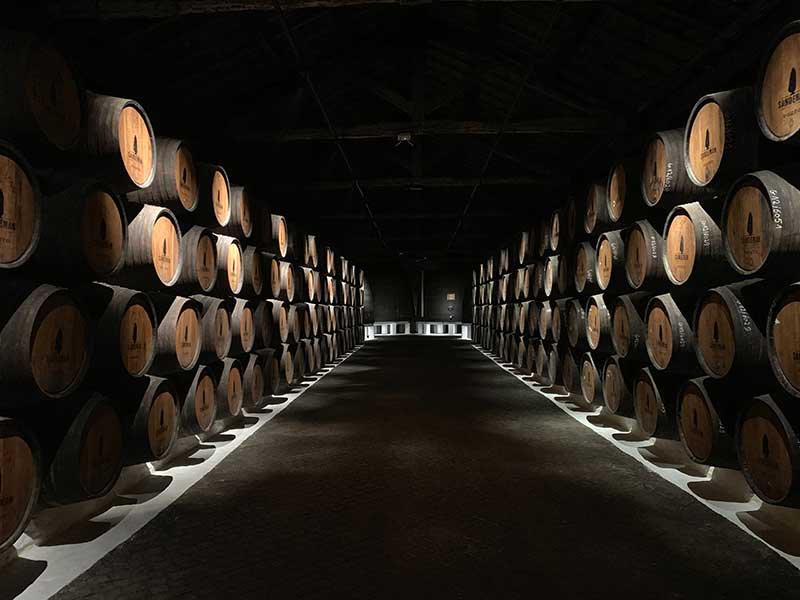The customer service team is always listening, taking notes, and quantifying complaints to ensure our products are continually improved. Due to selling directly to you, the customer, via Amazon, we can use product reviews to help us improve our existing products or help further development of new products.
How Temperature and humidity Affects Whisky
Table of Contents
‘Aging like fine whisky’ is an adage that has taken root, but cellar conditions for whisky humidity and the best temperature for ageing whisky ought to be properly enhanced for premium results. Crafting and maintaining just the ideal conditions for whisky, whether barreled or bottled, is an art in itself.
Temperature and humidity are imperative in whisky storage. Modern techniques to foster the prior-mentioned conditions have been drawn up. Therefore, you need to store your whisky at the proper temperature and humidity. You can use the thermometers and hygrometers to help you to create the ideal storing conditions. Let’s know more the details.
Importance of Storing Whisky Properly
Whisky enthusiasts and wine masters alike can attest to the fact that storage makes or breaks whisky; whether it’s in reference to its flavor, liquid quality, or mere longevity. Here’s why you should put more emphasis on ensuring optimum conditions for whisky storage:
Whisky Quality is Ruined by Extreme Weather Conditions
Whisky experts say that only cool, non-humid conditions can help you maintain the taste and flavor of that whisky that you’re so fond of. The bottles harboring the drink can also suffer drastically. High temperatures may lead to expansion of the bottle leading to eventual damage to the cork. In comparison, humidity ruins the exterior of the bottle, slowly tampering with the labels.
Oxidation is Hazardous to Whisky
Whisky bottles ought to be stored in a horizontal position. This is important in a couple of ways. First, the cork stands upright and remains a bit moist. It is then ‘soaked in’ and tightens the bottle opening. Secondly, the cork allows little or no air into the bottle, thus fostering the whisky quality. In addition to maintaining impeccable whisky conditions, the tightened cap makes sure that ‘popping’ doesn’t break it and that your champagne moment remains epic!
Whisky Balance can be Interfered with
When you expose your precious drink onto too much direct sunlight, you’re definitely disorienting the delicate balance making up its organic composition. In this case, sun rays disintegrate whiskey bonds and destabilize them. With time, drinking such whisky becomes unbearable.

How Does Temperature Affect Whisky Storage?
Alcohol is profoundly vulnerable to fluctuating temperature conditions. Whether you’ve stored it in barrels, bottles, or racks, the temperature is a top factor in dictating how the final flavor will pan out.
Foremost, it is crucial to understand that not only does temperature affect how your whisky ages, but also how much evaporation ensues and how much interaction it has had with the wood making up the barrel. Typically, barrels are stored horizontally, racking up against each other. The whisky molecules on the uppermost barrels are likely to evaporate faster since it’s much hotter there. This consequentially leads to a rise in alcohol proof.
Barrels stored on the lower levels of the warehouse will experience the opposite effect. Evaporation is at an appreciable minimum; thus, moisture rarely escapes into the atmosphere. This translates to water particles penetrating the water barrel and lowering the alcohol proof.
Everyone has got to agree that obtaining the best temperature for aging whisky is hard graft. Perfect whisky calls for low-temperature, pristine conditions that are way too hard to achieve. However, you can still achieve the best temperature for barrel aging whisky and evade it from disintegration and loss of its unique flavor.
Experts recommend mild temperatures of about 15- 20 degrees Celsius and not more than a 4-degree temperature fluctuation. Too much deviation will cause the barrel aging whiskey to not engage with the wood properly, thus losing the intended distinct flavor.
How Does Humidity Affect Whiskey Storage?
In most instances, this drink doesn’t get the luxury of taking rest in a conditions-controlled warehouse, thus the need to identify the ideal humidity for whisky. More so, whisky flavor varies in relation to the surrounding humidity conditions.
If varied concisely, humidity can help manufacturers come up with slightly different whisky flavors, distinct from the original specimen. How so? Well, whisky is typically stored in gigantic warehouses with racks stacking up onto the roof and evenly separated with floorboards, which are set a distance apart. Conventionally, the barrels at the bottom are the most humid whilst those at the top of the racks are the least humid.
Thus, those on the topmost floors are most likely to have high-proof whisky while those at the bottom will remain with a dense, viscous composition giving them an edgy sweetness but lacking in scent. On the other hand, when you achieve the cellar conditions for whisky humidity, you’re likely to experience some marked sweetness and peat.
What Other Conditions Affect Whisky Storage?
Other than temperature and humidity, there is a myriad of other culpable factors that whisky quality hinges on. Let’s have a look.
Location
This factor is dual-faceted. In as much the geographical location of the whisky warehouse matters, the exact segment within the warehouse where the barrels will be located is also crucial. If you want your whisky to age faster, place your barrels at the top racks of the warehouse where evaporation is palpable. Thus, if you want to experience distinct whiskey flavors, store your barrels in different places in the warehouse that receive a varying flow of temperature and humidity. You get to tailor the conditions to achieve a particular taste.
Bottle Placement
Unlike wine bottles, whiskey bottles ought to be kept in an upright position. It is common knowledge that whisky bottles are capped using cork. When positioned in a ‘standing’ manner, the cork can be sucked tightly onto the bottle, thereby preventing the contents of the bottle from experiencing the adverse effects of any external weather conditions.
Sunlight
If you keep a certain batch of your whisky barrels exposed to direct sunlight, the particular end that’s fully exposed may disintegrate, and your alcohol may lose its endearing flavor. If you must expose your barrels to sunlight, make sure you do so in considerable variations to enable the whisky ‘cook’ itself properly for that enriching taste.
How to Detect Temperature and Humidity Variations?
Experts continue to recommend modern equipment to detect any weather fluctuations that may negatively impact your ageing whisky.
The ThermoPro Indoor Thermometer&Hygrometer is one such tool. It is very useful, you can use the ThermoPro hygrometers for kinds of situations.
Boasting a pair of polished temperature and humidity sensors, it is primed to detect any meagre changes in room conditions and can be such a great buy for your whisky warehouse. Additionally, it is equipped with a huge LCD screen portraying the current indoor temperature and may come in handy in stuffy areas within the warehouse.









